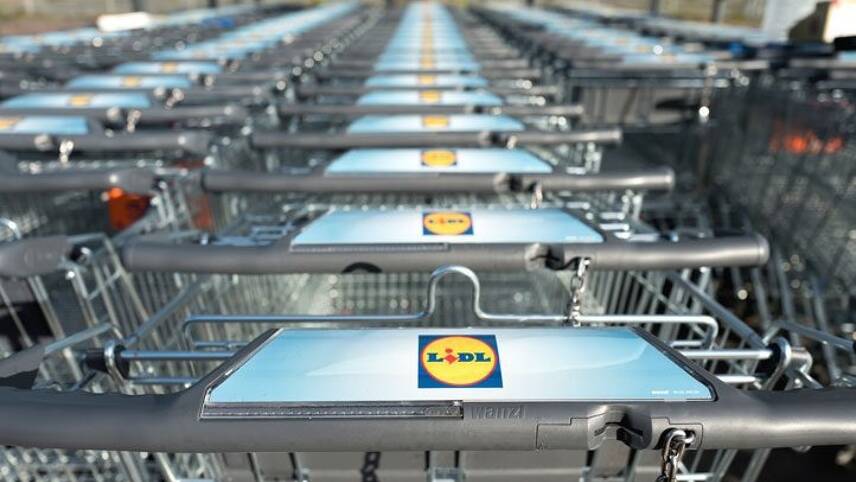Register for free and continue reading
Join our growing army of changemakers and get unlimited access to our premium content

Image: Lidl GB
LEAF stands for ‘Linking Environment and Farming’. The scheme is one of the world’s largest certification programmes for farmers, recognising the uptake of more sustainable approaches to food production.
Farms are only able to achieve certification, the scheme states, if they take a whole-business approach that delivers multiple benefits across the environmental agenda. The long-term aim is to help farmers achieve nature-positive or regenerative farming, whereby net-positive outcomes are achieved for biodiversity and soil health.
Of the 524 UK farms already certified under LEAF, 83% manage reservoirs for water quality, 67% self-generate renewable energy, 42% track and improve soil organic matter and 39% are using the scheme’s carbon footprint tool.
Lidl GB’s head of responsible sourcing and ethical trade, Amali Bunter, said: “New patterns of production and consumption are emerging across Great Britain, reflecting global geopolitical uncertainty, resource availability and consumer preferences. As a leading food retailer, we recognise the demand we place on our agricultural resources and the influence we have on our suppliers’ practices.
Bunter, a member of edie’s 30 Under 30 Class of 2020, added: “Our partnership with LEAF builds on the ambitions of our sustainability strategy ‘to Make Good Food Accessible to Everyone’, which sets out clear goals around reducing carbon emissions across our supply chains, minimising food loss from farm to fork, supporting more circular farming systems which protect and enhance our precious ecosystems and sourcing all our products in a way that respects the environment.”
When it comes to produce grown outside of the UK, Lidl GB has opted to use the GLOBAL G.A.P scheme, which is operational in more than 120 countries and certifies good agricultural practice. At present, the scheme is “undergoing an intense revision” to help deliver an adequate response to mounting challenges such as biodiversity loss.
The new LEAF commitment comes after Lidl GB trialled ‘eco-labels’ on dozens of its most popular own-brand product lines at the end of 2021. The supermarket is yet to announce plans for an expansion and/or extension of this approach.
A new leaf
As of 2021, around 45% of produce grown in the UK was LEAF-certified, the scheme estimates. LEAF is aiming to cover 85% of UK-grown fruit and vegetables by the start of 2026.
Other business supporters include Tesco, which is aiming to certify all UK growers by 2022 and all global growers by 2025, and Waitrose, which certified all UK-grown produce more than ten years ago.
As well as Lidl GB, the scheme has this month received new support from PepsiCo. The multinational has pledged that all 300+ of its UK-based Quaker Oats farmers will achieve certification by the end of 2023.
Focus on British farms
Earlier this month, the UK Government’s Department for Food, the Environment and Rural Affairs (Defra) unveiled two of the new post-Brexit subsidy schemes for farmers promised under the Agriculture Bill – the Local Nature Recovery scheme and Landscape Recovery scheme. This announcement built on the confirmation of the Basic Payment Scheme under the new Environmental Land Management (ELM) package, made in December 2021.
These announcements were met with criticism, with trade groups, individual farmers and green groups all calling for more detailed information on the schemes’ operations and predicted outcomes, a faster rollout and higher payments. These criticisms have also been put to Defra by the Public Accounts Committee (PAC), but Ministers have maintained that they are doing enough to support farmers and protect the environment.
Sarah George


Please login or Register to leave a comment.